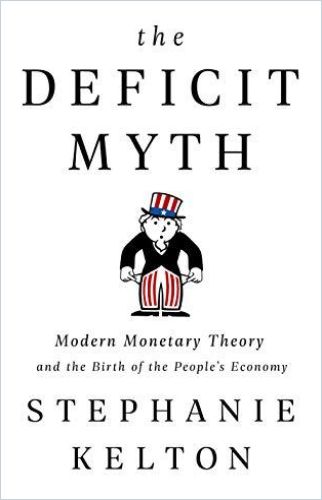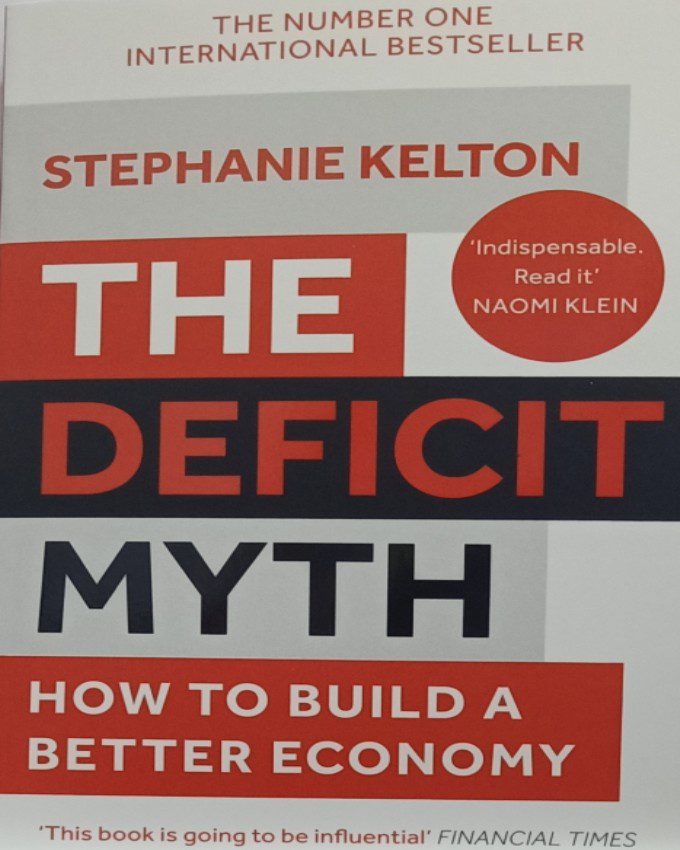
The primary reason for intricately designed tax policy, argues Kelton, is to help balance those buckets, thus controlling inflation. Kelton concedes the point that in reality government deficits do not always help the people they should, but suggests that at least they can help if the right policies are in place. Thus, Uncle Sam’s deficit means a surplus for everybody else, including the private sector (MMT argues that government spending cannot ‘crowd out’ the private sector, as fiscal conservatives argue). This money is used to support interest rates, not to pay down debt. When private actors buy treasuries, they are in fact returning money originally issued by the government into Uncle Sam’s bucket. In short, explains Kelton, all money in the domestic economy can be separated into one of two “buckets” – Uncle Sam’s and everybody else’s. Through a series of diagrams and metaphors, Kelton explains why the government does not even need to pay the interest on its treasuries (treasuries operate like bonds and are the primary vehicle of deficit spending).

Contrary to orthodox fiscal policy, therefore, the government does not need to raise money through taxation to pay for things, because as long as it is monetarily sovereign, deficit spending is fiscally sound. Governments spend money into existence, not taxpayers. In fact, one of the core tenets of MMT is chartalism, or the idea that governments created taxation in part to introduce their preferred currency into society (as opposed to the notion that currency arose naturally to service market transaction). Kelton begins her explanation with a basic opposition with which many of us are likely familiar – that the government budget is not like our household budget because it is the issuer of its own currency. The aim of this review is to first summarize her basic argument, before turning to both its promise and possible points of tension with the various forms of progressive political praxis frequently debated in geography. While she never quite illustrates how a ‘people’s economy’ has been or might be born, she does elaborate on the policy implications of MMT. The deliberate choice of the word ‘myth’ in her title is apt: one of the strengths of Kelton’s work is how deeply it undercuts the mythos of austerity that has unnecessarily constrained government fiscal policy for so long.

Kelton’s book is targeted to a broad audience-and appropriately so-as she colors the outlines of MMT with various diagrams, metaphors, and personal stories.

Stephanie Kelton’s The Deficit Myth: Modern Monetary Theory and the Birth of the People’s Economy provides an enjoyable and accessible (though often repetitive) condensation of the emergence of Modern Monetary Theory (MMT) over the last twenty years or so, and what it means for the Left’s version of economic populism.


 0 kommentar(er)
0 kommentar(er)
